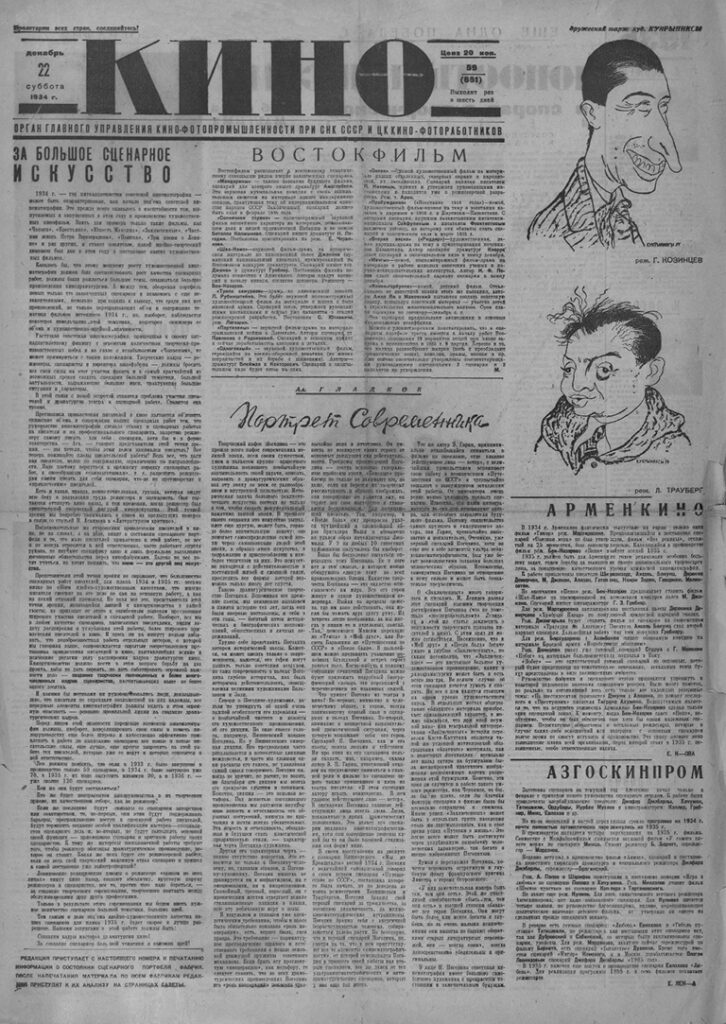Kino Digital Archive
Chronicle of key era in the development of Soviet and international cinema
This complete digital archive presents the influential Soviet film industry newspaper Kino (Kино, Cinema), which was published under various titles from 1923 to 1941. The newspaper served as a crucial chronicle of Soviet cinema’s development during a transformative period in film history, making it an invaluable resource for researchers of Soviet and world cinema.
The publication was founded by documentary filmmaker Vladimir Erofeev and critic Nikolai Lebedev, who were instrumental in establishing the Association of Revolutionary Cinematography (ARK) in 1924. Under the editorship of Alexander Kurs, praised by Vladimir Mayakovsky as a “born newspaperman,” the publication reached unprecedented circulation numbers of up to 80,000 copies and expanded its influence beyond film industry professionals.
The newspaper’s comprehensive coverage included film reviews, technical articles on cinematography, economic analyses of film studios, and discussions about the transition to sound cinema. Regular sections featured “Programs and Libretto” (featuring synopses of new films), “Cinema Chronicle,” “Cinema in the Provinces,” and “News from the West.” The publication maintained extensive coverage of Western cinema, with particular attention to American, German, French, Italian, and Bulgarian films, including international reception of Soviet masterpieces such as the German response to “Bronenosets Potemkin.”
Special attention was devoted to the development of national cinema in Soviet republics, documenting Moscow filmmakers’ expeditions to Central Asia, the Caucasus, and other regions of the USSR. The newspaper regularly covered technological developments in cinematography, projection, laboratory processes, and lighting equipment, including the transition to sound film. The archive contains in-depth coverage of significant Soviet films including “Bronenosets Potemkin,” “Putevka v zhizn’,” “Iunost’ Maksima,” “Chapaev,” and “Veselye rebiata,” offering contemporary perspectives on these classic works.
During World War II, the newspaper’s final issues focused on short films documenting the struggle against Nazi occupation, with the last issue published on November 1, 1941. This digital archive represents an essential primary source for understanding the development of Soviet cinema, its relationship with international film movements, and the broader cultural and political context of the interwar period. It offers researchers unprecedented access to contemporary discussions about film aesthetics, technology, and ideology during a crucial period in cinema history.
The Kino Digital Archive is part of the East View Essentials: Soviet and Russian Film package. Learn more
